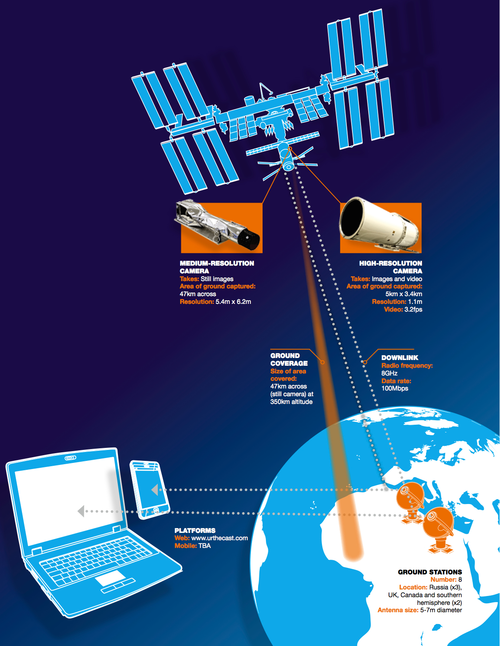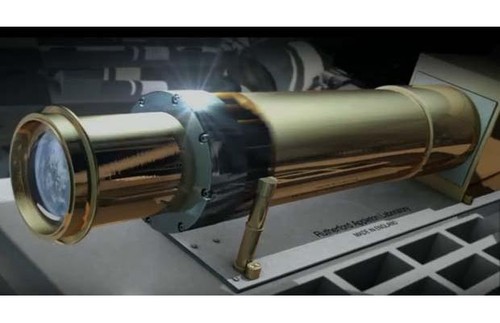UrtheCast Will Provide Live HD Video Of The Earth From Space In 2013

UrtheCast, a Canadian startup, aims to launch two HD cameras (a medium resolution camera and a high-resolution camera) into orbit and affix them onto the Russian module of the International Space Station in 2013. The ISS orbits the Earth from a 350km-distance16 times a day with a variation that will cover its most inhabited places. The data will then be compressed using the JPEG2000 standard, shot down to ground stations located around the globe and made available on the Internet to web and mobile devices.The HD video will be then transmitted live and the captured still images will be provided free of charge. UrtheCast will make rewinding, fast-forwarding and pausing parts of the nearly live streaming video possible; your favorite clips will be easily uploadable onto Facebook and Twitter. UrtheCast assumes their free service as “a singular vantage point for observing environmental events around the world with recent and relevant video footage of earthquakes, floods, volcanoes, droughts and the effects of environmental change.”
| Tweet |













